
Edith, a 12-year-old Black girl, was rescued from slavery by a free black man named Daniel Blue who went to court to liberate her from the clutches of a white slaveholder. According to historians, Edith’s legal battle is the last known court case involving an enslaved person in California.
Daniel Blue was a formerly enslaved Black man living in Sacramento County who had made his fortune in the gold mines. At one time, he was a neighbor of California’s first Governor Peter Burnett, a white supremacist who fought to ban Black people from the state.
In early 1864, Blue, noticed that a white man who lived nearby Walter Gammon, had custody of a black child who was being “inhumanely beaten, and let go without the necessary care and clothing to make her comfortable and decent.” Blue came to the child’s defense, filing a complaint against Edith’s abuser in county court. A judge ordered the slaveholder to bring Edith to court. Blue also submitted a petition in probate court to become the child’s legal guardian. Gammon claimed in court that Edith was living with him freely. Because earlier laws that prevented black people from testifying against white people had been repealed, Blue was able to bring witnesses to court to refute the slaveholder’s false claim. The witnesses convinced the judge to remove Edith from Gammon’s custody. She was set free and went to live with Blue, his wife and children. The case illustrates the agency of black people who successfully fought to help enslaved children, men and women win their freedom.
Blue also submitted a petition in probate court to become the child’s legal guardian. Gammon claimed in court that Edith was living with him freely.
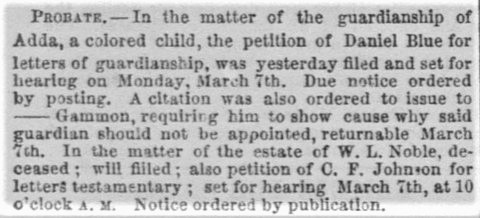
News clipping on petition to free Edith Blue: “In the Matter of the Guardianship of Adda, a colored child” February 25, 1864. Sacramento Daily Union, vol 26, no 4034. Courtesy of the California Digital Newspaper Collection, Center for Bibliographic Studies and Research, University of California, Riverside
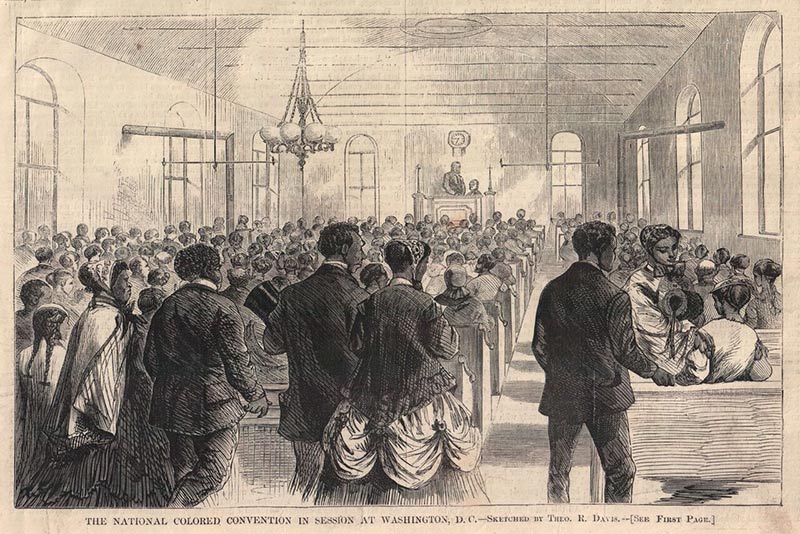
The Colored Conventions were a monumental organizing effort by black people across the country to fight for full citizenship rights. The conventions laid a foundation that the civil rights movement would build on.
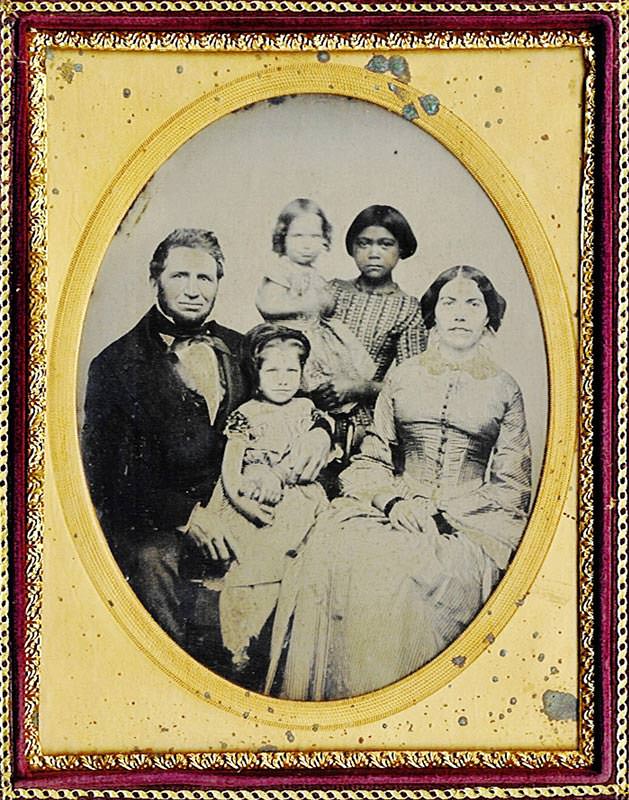
Looking to satisfy demands for cheap household labor, California passed a law that encouraged the kidnapping of Native Children.
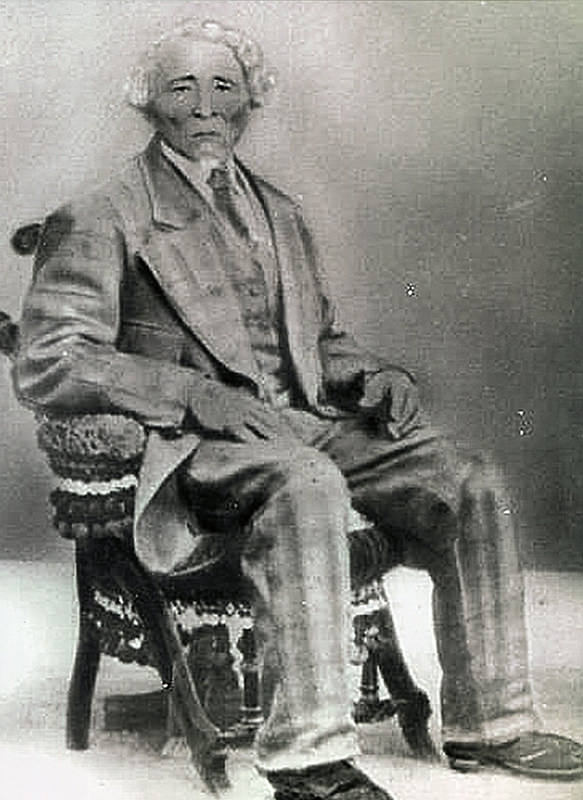
After purchasing his freedom, Edmond Wysinger filed a historic lawsuit that made it illegal for California public schools to ban black students.
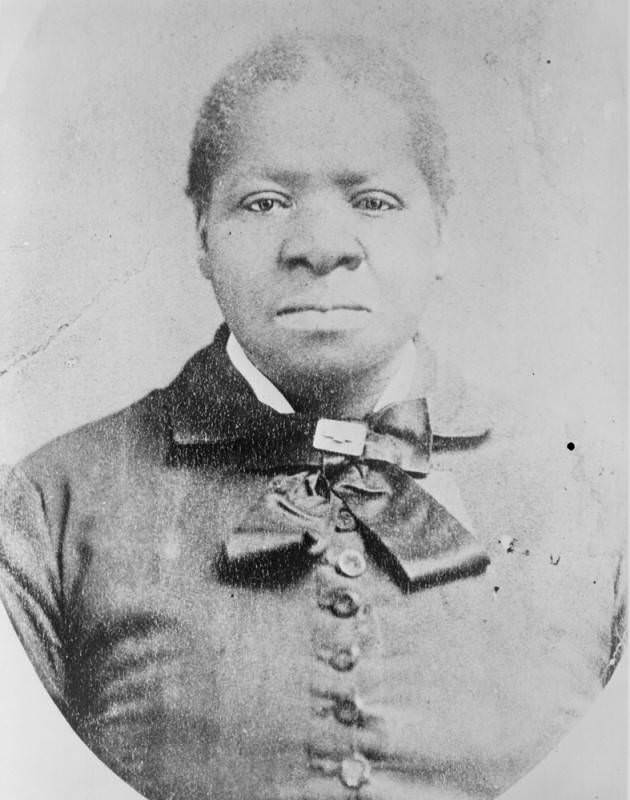
Bridget “Biddy” Mason was brought as a slave to California. When she learned of her legal rights, she sued for freedom for herself and her family and won, in what became a landmark court case.
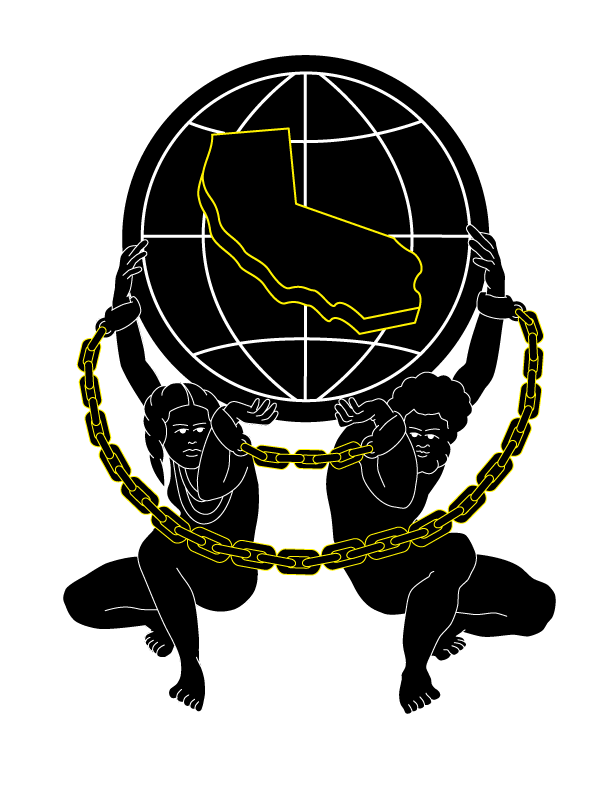
The mission of Gold Chains is to uncover the hidden history of slavery in California by lifting up the voices of courageous African American and Native American individuals who challenged their brutal treatment and demanded their civil rights, inspiring us with their ingenuity, resilience, and tenacity. We aim to expose the role of the courts, laws, and the tacit acceptance of white supremacy in sanctioning race-based violence and discrimination that continues into the present day. Through an unflinching examination of our collective past, we invite California to become truly aware and authentically enlightened.